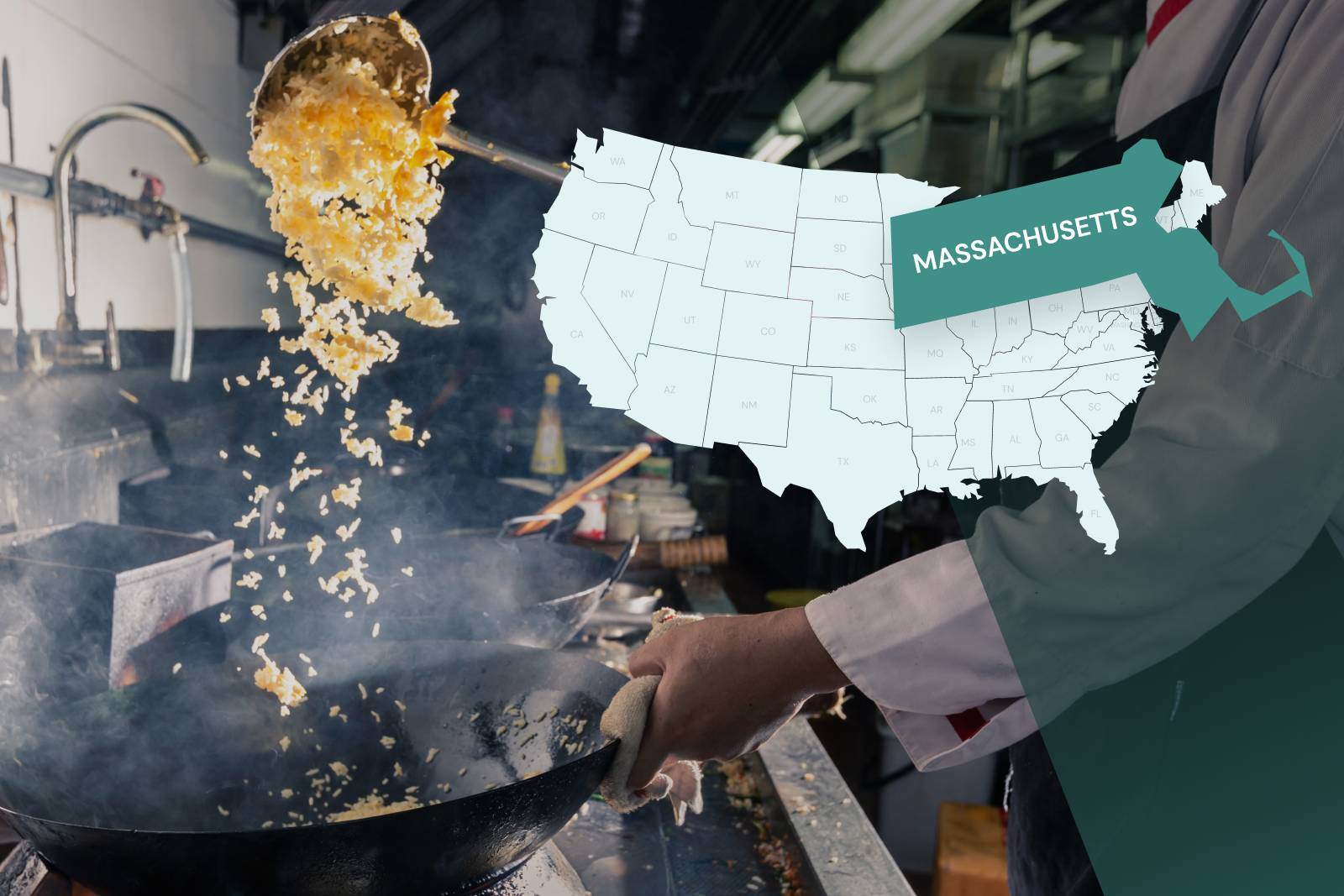The Food and Drug Administration (FDA) has published and maintained a model food code for the last 30 years–with the most recent update released at the beginning of 2023. While the FDA Food Code provides federal recommendations to the states, each state has the authority to develop and implement its own food safety rules.
Kentucky is a prime example of how local jurisdictions manage food safety training and certification differently from federal guidelines.
In this guide, we will walk through everything you need to know about Kentucky’s food safety certification requirements, including:
What are the food safety training and certification requirements in Kentucky?
What information do I need to know as a person in charge in Kentucky?
Why do counties in Kentucky offer their own training programs?
Should I use my local health department’s food safety program?
Does Kentucky require food handler cards or certificates?
Why should I choose Trust20 for my food safety credentials in Kentucky?
What are the food safety training and certification requirements in Kentucky?
Kentucky has modeled its food safety rules after the 2013 FDA Food Code. There are two important requirements to note.
First, every food establishment must employ one Certified Food Protection Manager (CFPM), and each establishment must publicly post its CFPM’s credentials.
Second, a designated person in charge must be present at any food establishment during all hours of operation (whether the establishment is open for business or simply preparing food for service).
The person in charge who is on premises during business operations must either be a Certified Food Protection Manager (someone who has passed an exam from an accredited provider) or be able to demonstrate their food safety knowledge when asked questions by a health inspector (and there are 17 areas of knowledge they could ask about!).
The statewide guidance may seem pretty broad–and that is because individual counties and districts (regional health departments that cover multiple counties) handle food safety. In fact, there are 62 local health departments that oversee the retail food programs of each region in Kentucky.
While some districts and counties offer their own training programs and certification exams, many allow substitute programs from accredited and approved providers (like Trust20). The ANSI National Accreditation Board (ANAB) and Conference for Food Protection (CFP) maintain a list of accredited certification programs to help make it easy to find an approved provider.
What information do I need to know as a person in charge in Kentucky?
There are 17 food safety topics you must demonstrate your knowledge of if you are a person in charge in Kentucky. A health inspector may ask you questions about the following:
-
The connection between foodborne disease prevention and food employee hygiene
-
Your responsibilities as they relate to preventing the transmission of foodborne disease from a food employee who has a disease or medical condition that may cause foodborne illness in others
-
The symptoms associated with foodborne illnesses and/or diseases
-
How maintaining the time and temperature of TCS foods relates to the prevention of foodborne illness
-
Why it may be risky for customers to consume raw or undercooked meat, poultry, eggs, and fish
-
What times and temperatures are required for the safe cooking of TCS foods–including meat, poultry, eggs, and fish
-
What times and temperatures are required for the safe refrigerated storage, hot holding, cooling, and reheating of TCS foods
-
How cross-contamination, handwashing, hand contact with ready-to-eat foods, and maintaining a clean food establishment relate to the prevention of foodborne illnesses
-
What foods are identified as major food allergens, and the symptoms of an allergic reaction
-
Why equipment that is sufficient in number and capacity and properly designed, constructed, located, installed, operated, maintained, and cleaned is important to food safety
-
How do you properly clean and sanitize utensils and food contact surfaces
-
What steps has the establishment taken to protect its water from contamination
-
Where are poisonous or toxic materials stored in the establishment, and are they safely stored, dispensed, used, and disposed of in accordance with the law
-
What are the critical control points in the operation from purchasing through sale or service that, when not controlled, may contribute to the transmission of foodborne illness, and what steps have been taken to ensure that the points are controlled in accordance with the requirements of the food code
-
If a HACCP plan is required, how do the person in charge and food employees comply with said plan
-
The responsibilities, rights, and authorities assigned to a food employee, conditional employee, person in charge, and regulatory authority
-
How the person in charge, food employees, and conditional employees comply with reporting responsibilities and the exclusion or restriction of food employees.
If you’ve been in the food industry for a long time, you might feel confident in your ability to talk about these topics; however, failure to correctly answer questions from your health inspector may have serious business consequences–so occasionally, training might be the right choice for you.
Why do counties in Kentucky offer their own training programs?
Kentucky requires a person in charge to demonstrate their knowledge of foodborne illness prevention–either through earning Certified Food Protection Manager credentials or by being able to answer any questions a health inspector asks thoroughly.
According to Kentucky officials, cost is one of the leading factors in local jurisdictions choosing to offer their own training programs. Adherence to a less rigorous edition of the food code means each country or district can offer a training program at a more affordable price than many commercial providers.
That said, researching your options is always worth it, as companies (like Trust20) offer discounts on group purchases (or even discount codes through partners!).
Should I use my local health department’s food safety program?
It depends! While a course from your local health department may help you meet your demonstration of knowledge requirements, it may only address some topics that a certification exam tests you on.
If you plan to work your entire career in the same jurisdiction as your training and are certain you do not need to take a certification exam, your local health department’s program might be right for you.
However, if you intend to move to a different district, your credentials may not transfer over–and if you move out of state, you may even have to start over the training and certification process from the beginning!
Earning a Food Protection Manager Certification from a nationally recognized provider means you can take your expertise wherever you go. Only eight certification providers in the country meet the rigorous standards of ANAB and the CFP–meaning selecting one of these providers guarantees a trusted, high-quality certification.
Does Kentucky require food handler cards or certificates?
No, the Kentucky Food Code does not require food handler cards or certificates. However, some districts, counties, or individual employers may have different requirements.
While food handlers do not always need credentials, the state requires that food employees receive some kind of food safety training related to their assigned duties. Some of the required training topics include:
-
The risks of bare-hand contact with ready-to-eat foods
-
Proper handwashing procedures
-
When to wash their hands in accordance with the food code requirements
-
Proper fingernail maintenance
-
Prohibition of jewelry
-
Good hygienic practices
Some managers or persons in charge may decide they want their staff to take a food handler course to streamline their training process (and group purchases often come with a discount!).
Why should I choose Trust20 for my food safety credentials in Kentucky?
Trust20 provides the food industry with nationally-recognized food safety trainings and certification. Our Food Protection Manager Certification is accredited by the ANSI National Accreditation Board and Conference for Food Protection, and it is recognized as an approved substitute by all of Kentucky’s health departments.
In addition to offering an approved path to CFPM credentials, Trust20’s Food Manager Training and Food Handler Training are interactive, mobile-friendly, and ANAB-accredited courses designed to help foodservice professionals retain and utilize their food safety knowledge.
Trust20 also offers operators and managers the option to make a group purchase of access to our trainings and certification exam. If you oversee a large staff, Trust20 for Teams makes it easy for you to offer training to everyone you onboard–and oversee their progress on our manager dashboard.
One designated provider ensures your entire team has learned the same information and can easily implement the same processes into your business–keeping customers safe and healthy and returning to your establishment again and again.
The Takeaway
Kentucky models its state food code from the 2013 FDA Food Code, while local districts and counties oversee regional retail food programs.
According to the legislation, foodservice establishments must have a person in charge who can demonstrate food safety knowledge on premises during all hours of operation. This person in charge can demonstrate their knowledge by earning CFPM credentials or by answering questions from their local health inspector.
There are many topics a health inspector may ask of a person in charge; therefore, it may be more beneficial for you to seek out training or CFPM credentials to stay ahead of the curve.
Many local jurisdictions in Kentucky offer their own programs, but choosing a provider with nationally recognized training and certification programs may serve you and your business better in the long run.
Demonstrating food safety knowledge to your health inspector is just one small part of running a reputable food business–the actionable processes and procedures you and your team learn about through training and certification help cultivate a positive food safety culture in your establishment while protecting your customers from foodborne illnesses.






